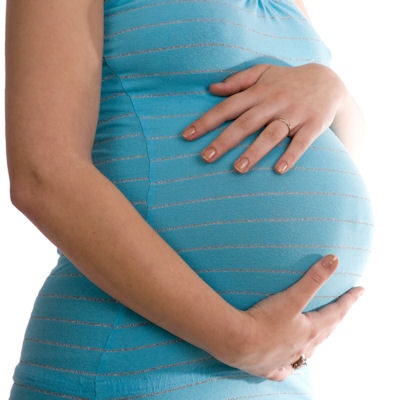
Fentanyl administered to pregnant women during labor may be passed on to their babies and show up in neonatal urine samples, researchers reported in the Journal of Applied Laboratory Medicine on March 24. Labs should be aware of this mode of transmission when screening for opioid abuse, they advised.
The investigators evaluated urine toxicology screening results from 96 newborns, using a review of medical records, which included the type and level of anesthesia administered to mothers during labor. Of the total, 29% of neonatal samples were positive for fentanyl, reported Athena Petrides, PhD, an assistant professor of pathology at Brigham and Women's Hospital and Harvard Medical School, and colleagues.
The more and longer fentanyl was administered during labor, the more likely it was that the substance would be transmitted from mother to child (p < 0.001).
"Our study establishes that maternal fentanyl analgesia is strongly associated with positive neonatal urine fentanyl screens and suggests that more judicious use of these laboratory tests may be warranted," Petrides and colleagues wrote in the JALM, a journal of the American Association for Clinical Chemistry (AACC).
Positive results may not mean drug abuse
For the study, the researchers evaluated records for 96 neonates born to women with no history or clinical or laboratory evidence of fentanyl drug abuse. The urine samples were taken within three days of birth and had been screened using homogeneous enzyme immunoassay (HEIA) testing, with a detection threshold of 4 ng/mL applied. Specimens for a subset of nine neonates had also been tested for fentanyl using liquid chromatography-tandem mass spectrometry (LC-MS/MS), with a detection threshold of 1 ng/mL applied.
In 82 babies born to women who had received anesthesia with fentanyl during labor, 29% met the 4 ng/mL fentanyl threshold. The absence of fentanyl during labor was associated with negative results in neonatal urine samples. All 14 samples from neonates whose mothers did not get fentanyl during labor were negative.
"The most important clinical implication of these findings is that a positive neonatal urine fentanyl test [result] cannot and should not be used to identify fentanyl drug abuse in mothers who receive fentanyl-containing labor analgesia," Petrides and colleagues wrote.
A larger dose of fentanyl for a longer period during labor was more commonly associated with positive results in neonates. A cumulative fentanyl dose of less than 100 µg for less than five hours was not associated with a positive screening result, whereas a cumulative fentanyl dose of more than 100 µg over 10 hours was, the group reported.
"The odds of positive neonatal fentanyl screen results increased 4-fold for every 5 hours of maternal exposure to labor analgesia," the authors explained.
Furthermore, in the analysis of nine samples for fentanyl and the fentanyl metabolite norfentanyl with LC-MS/MS, three samples that were negative based on immunoassay testing were instead positive, according to the researchers.
Similar outcomes, regardless of results
The authors also noted, however, that neonatal outcomes were similar regardless of whether specimens were judged as positive or negative for fentanyl, based on appearance, pulse, grimace, activity, and respiration (APGAR) scores and prolonged respiratory distress observed in the first several hours after birth.
"Importantly ... neonatal outcomes for infants with positive and negative urine fentanyl screens were the same," the authors wrote.
This is reassuring, but further study and communication efforts are needed, Petrides and colleagues suggested. Only nine of the samples were tested with LC-MS/MS, which is more sensitive than immunoassay testing, so it's possible that more of the newborns in the study were positive for fentanyl, they noted.
Also, broad screening for opioid abuse is now conducted at some institutions, and there is a risk that women may be suspected even though the screen was positive due to fentanyl administered during labor. In fact, one of the women studied had been reprimanded for a positive screen.
"Since clinical suspicion of drug use in mothers has numerous psychosocial repercussions, it is important to educate clinicians about the incidence of positive neonatal urine screens associated with maternal labor analgesia," the authors wrote.
In a statement about the data, the AACC noted that drug use during pregnancy is criminalized in some states and false positives can result in the loss of child custody.



















